By KARITHI NGEERA
As the reforms debate gains momentum, it is important to look critically at the proposed reforms, try to unveil the thinking behind it and the rationale for the positions being taken by both sides of the political divide. Let us take each proposal separately and critically evaluate it.
First, the Head of State is to be barred from appointing Opposition MPs into Government without negotiating with their parties. The reform proponents claim that this is meant to stop a sitting president from killing opposition parties by poaching MPs into the government. But does the president force any opposition MP to take up the position? My view is that the proposal is being pushed by opposition chiefs because they have no grip on their MPs who switch loyalty according to where there bread is being buttered. This is because politics in Kenya is for personal gain not for the party or serving the country. Moreover Kenyan political parties are devoid of ideologies, based on personalities and tribal affiliations instead and therefore one party is “as good as the other”.
The proposal is therefore meant to protect the tribal party chiefs against decamping of MPs who can very easily be lured by promises of ministerial positions, huge bribes and plum positions for their friends, kin and cronies. With MPs effectively caged, party chiefs can now use their voting strength in parliament to intimidate and blackmail the government in power by for example voting out important government motions and programmes. This has the potential of crippling government operations if political battles get out of control. LDP/ODM learnt a bitter lesson when Kibaki trashed the MOU, formed the government of national unity and after the referendum when the president refused to negotiate with them as a party and sacked the LDP ministers. This is a loophole LDP/ODM-Kenya is trying to seal.
The second proposal is to take away the power of the president to dissolve, summon or prorogue parliament. Taken in the historical perspective, this is also a lesson learnt from Moi’s political gymnastics which Kibaki did not hesitate to copy after the defeat of his government in the last year’s referendum. Consider this; the opposition has always considered passing a vote of no confidence on the government even during Moi days. Last year, LDP was so charged and excited after the referendum triumph that talk was in the air for a vote of no confidence in Kibaki’s administration.
It is also a card LDP could have also played after Kibaki trashed the MOU. In both instances, the stumbling block has been the fact that in case of such a vote, the president together with the entire parliament would have to seek a fresh mandate. Most MPs fear that they would not survive such an election and this is the reason this frontier of political battle in never explored in parliament. This proposal is therefore meant to separate the fate of the government with that of MPs since the president cannot call for a snap election or scuttle an impending vote of no confidence by proroguing or suspending the National Assembly.
If this proposal passes, we are likely to see votes of no confidence motions being often used as another frontier of political battles in parliament. This strengthens the politicians who can kick out a government and a president elected by wananchi without reference to them and also without endangering their political careers.
Thirdly, there is the proposal that a presidential candidate must garner more than 50 per cent of all votes cast and 25 per cent in at least five provinces to win an election. This is a clever game of numbers being played on wananchi. The opposition learnt a lesson when Moi won the two multiparty elections on minority votes. This position was also strengthened by the Narc experiment where pooling together of tribal voting blocks commanded by the various tribal chiefs carried the day in 2002. The November 2005 referendum and results of opinion polls that have been conducted also have a bearing in this provision.
Let us then bring these 4 lessons together and see how they are related to this proposal: The Narc experiment taught us that the tribal chiefs coming together can easily combine their tribal voting blocks into an electoral victory. The opinion polls have given us the indicative size of the voting block under the command of each tribal chief. The referendum further taught us the power of combining tribal blocks and also reinforces another lesson learnt during the 2002 elections, that a sitting government can be handed an electoral defeat.
Let us now play the mathematical game: During November referendum, what is now Narc-Kenya garnered 43 per cent while what is ODM-Kenya took 57 per cent. This shows that on a one on one, ODM commands a larger vote factory. Additionally, an opinion poll conducted in July this year by Steadman Group allocates the following voting slices for each candidate as shown below; President Kibaki, 30 per cent, Kalonzo Musyoka, 27 per cent , Raila Odinga, 14 per cent, Uhuru Kenyatta, 13 per cent, William Ruto, 5 percent, Musalia Mudavadi, 2 per cent. These are very interesting working figures for the quantitative minded. Simple calculation therefore reveals that if the proposal is adopted none of the candidates would garner the requisite 50% plus votes in 2007. This will leads to a run-off that will just be a recreation of the November 2005 referendum.
The ODM line –up will combine their voting blocks which roughly add up to 60 percent guaranteeing them an electoral victory. Even if the 50 percent clause does not go through the current line-up of ODM-Kenya can very easily block the Narc-Kenya candidate from garnering the current mandatory 25 percent in five provinces. That is the reason ODM-Kenya has lined up a provincial representative for each of the eight provinces.
Fourthly, the number of ministers should not be less than 15 and not more than 25. This limits the number of ministerial positions that the president has to entice opposition MPs with. This takes care of another important opposition chief’s nightmare. Poaching of their members.
Fifth, funding of political parties by public funds is proposed. Politicians say that this will eliminate corruption in the party funding. But it is the politicians who run political parties and is therefore an unwitting acceptance that our political parties are rotten to the core with corruption. My view is that these funds are just meant to add the public money in the control of the politicians in addition to the Community Development Fund, Community Bursary Fund, Constituency Roads Fund and Constituency Aids Control Fund.
Sixth, dual citizenship is proposed. This is good, but currently it is meant to placate the Kenyans in diaspora. Recently, we have seen the opposition chiefs make whirlwind trips in Europe and America talking to Kenyans in abroad. This is one bait being used to buy their support. Seventh, vetting of key statutory and public office holders by Parliament is proposed. It is said this will ensure people are appointed on merit, ability and integrity and not on political agenda. Again this is a ploy to limit the positions a president has of “buying” opposition politicians. The other problem that I see with this proposal is the danger of politicising sensitive security positions like Director General of the National Security Intelligence Service, the Commissioner of Police and the Director of CID.
Eighth, the electoral Commission of Kenya should have professional commissioners who should be vetted by Parliament. This is noble and should be supported by all. But I am sure each side of the political divide is salivating to get a upper hand in the composition of ECK.
Ninth, entrenchment of the constitution review process into the current Constitution is a good proposal and should be supported by all. Relevant sections should be amended so that a new constitution can take over from the current one.
From the foregoing, it comes out clearly that the proposed minimum constitutional reforms have nothing to do with the common mwananchi but a political power game that is cleverly being played by the political class. The opposition is trying to seal loopholes that give the ruling elite an upper hand in the power game and also smooth their path to power come 2007. On the other hand, the ruling elite are resisting any efforts of trimming their powers as well as efforts to unseat them in the forth coming election. This is the rationale of the positions being taken by both ODM-Kenya and “the ruling party”– Narc Kenya
Tuesday, July 24, 2007
Subscribe to:
Post Comments (Atom)









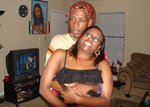


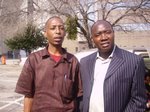

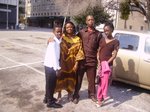

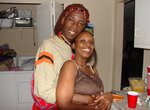

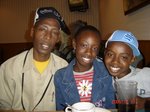








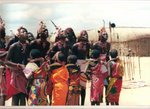
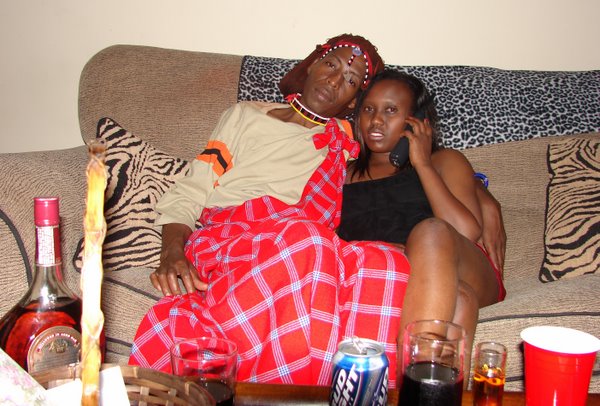
No comments:
Post a Comment